Interview
Salary review not enough to tackle corruption in judiciary — Erugo, SAN
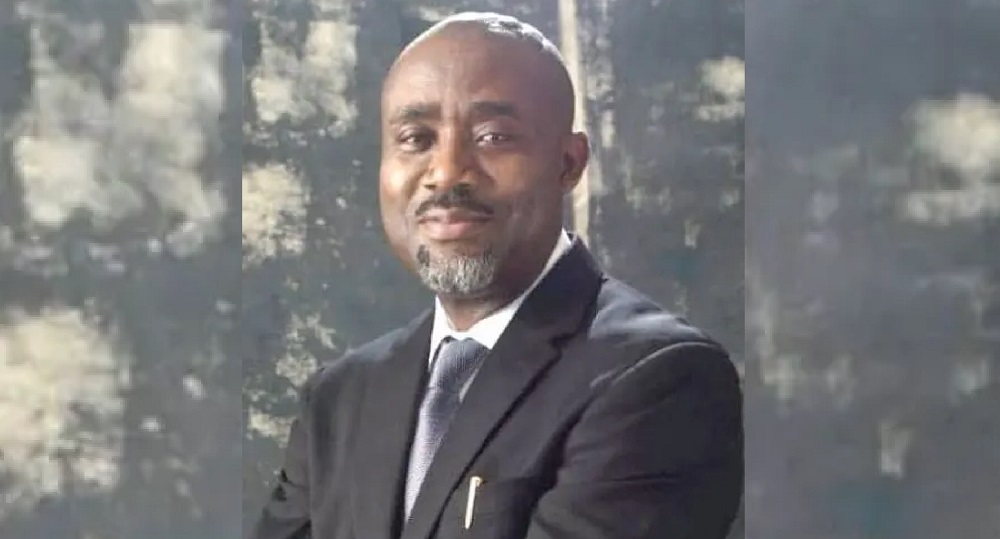
Law Professor, Sam Erugo, SAN, in this interview, spoke on the low public perception of the judiciary, agitation for the appointment of lawyers as Supreme Court Justices, review of the Nigerian Constitution, recent review of salaries of judicial officers and its implication on the justice system. He also addressed other sundry issues.
By Innocent Anaba
Public perception of the judiciary has been very low in recent years. Why do you think this is so and how can the judiciary regain its lost glory?
From time immemorial there has always been poor public perception of the judiciary and this is essentially due to misconceptions and misjudgments of the law and the way it works. My inaugural lecture way back in 2017 titled ‘The Lawyer or Liar: The Myths and Realities of a Misjudged Profession’ was in conscious reference to this phenomenon as old as the legal profession itself.
There are certain perplexing myths and realities that complicate the public perception so much so that some people out of misconception or misjudgment will like to describe lawyers and ostensibly, judges as liars, and wish to associate the profession and institution with negative things, and portray members in negative light.
On the other hand, besides the perplexing misconception or misjudgment, the profession and judiciary are reflections of the society, and we must accept there are deviants, and sometimes the operators could err as human beings. Because of the nature of the institution, few deviants could add to the public hostility.
However, I agree that in Nigeria in recent times, low public perception of the judiciary got to disturbing level. The reasons are not far-fetched. Politics will appear to be the major challenge, and the few political cases that occupied the centre stage must be blamed. They over shadowed so many other disputes settled by the judiciary without much ado. The politicization of the judiciary and legal practice takes the pride of place in the low public perception.
There is little argument that politicians have infiltrated the judiciary to some extent, through influence in appointments of their nominees and cronies, and sometimes removal of judicial officers with impunity, and essentially by subjugating or conquering this third arm of government.
These and more issues translate to suspicions of political influence in the outcome of some, but definitely not all outcomes of political cases. As an active participant in the last electoral disputes, I can confidently state here that some cases were decided on the merits. But the unethical report of the cases gives a different impression.
Secondly, media, especially social media, and the consequent abuse of freedom of expression, is a challenge. Most of the social media reports provide evidence of not just misconception or misjudgment of the cases, but of outright ignorance. I must state here, without holding the brief of the bench, that each case is decided based on its peculiar facts and circumstances, and cases with similar facts could end up with different outcomes depending on some factors, including pleading, evidence and procedure, law and legal argument, etc.
This is where technicality comes in, and probably the competence of counsel could be relevant. So, it would be unfair to criticize judgments based on media reports and without looking at the pleadings, evidence presented to the court and the general conduct of the case. So, here we find that most public criticism is based on media reports that are not based on the facts from the courts. Of course, most social media reports are sponsored by politicians.
Thirdly, we must accept that some lawyers are either not adequately trained or fail to accept the ethics of the profession they freely chose to belong to as regulating their conduct. Unfortunately, for so many reasons, including number and politics again, the Bar Association is unable to control all the erring members.
On how the judiciary will regain its lost glory, this can be achieved first by necessary constitutional amendment, and implementation of constitutional provisions on full independence of the judiciary. If this is achieved, to a large extent the judiciary would be self-regulatory. That will translate to serious control in appointment and removal of judicial officers, adequate and commensurate remuneration, discipline, and generally insulation from politics and control of politicians.
Again, regulatory bodies should be empowered to regulate the judicial officers and legal practitioners, as regards the code of conduct for judicial officers and rules of professional ethics. Furthermore, we may have to be more transparent in the judicial process, live transmission and reporting of important trials and easy public access to court processes.
The President last month approved the review of the salary of judicial officers. Even the National Assembly upward reviewed the take hope of Supreme Court justice. How significant do you think these measures can go in tackling corruption and low motivation in the Bench?
I commend the interest shown by the President and National Assembly in the upward review of the salary of judicial officers. The review will definitely encourage them, but those are not enough. Could these new salary be compared to the emoluments of the Presidency and National Assembly members? The judiciary should be treated as equal stakeholders, and third of three equal terms. They deserve independence, to determine their own needs peculiar to the work they do for the nation, and to decide their fate.
Independence is critical. Increased remuneration will definitely improve motivation of judicial officers, but I doubt that it will in any way tackle corruption. Corruption in Nigeria has reached an alarming level, and the government may do well to holistically address the social justice issues that encourage the evil.
Despite the clamour for changes in the appointment of justices of the Supreme Court, the old order of choosing from the Bench remains in practice. Why do you think this is so and how can it be improved upon?
The judiciary is a conservative institution, and change is always difficult. There is no argument that the Bench remains the first and best contender for elevation because they are in the system and will easily qualify in the extant criteria set for such appointment to the Supreme Court. Again, as I discussed elsewhere, the Bar and academics both appear not prepared for the necessary judicial, not political, contest to have their members elevated straight to the Supreme Court. They may have to put a little pressure to have the rules changed to accommodate their practising lawyers and academics. That change could bring some spice to the apex court.
Some Nigerians have been clamouring for a holistic reform of the federal government structure to allow the states to have their Supreme Court as is practiced in other jurisdictions. What is your take on this?
I am one of those opposed to such idea; and I am not sure that is the reform we desire. At the State level, we have Magistrates’ and other smaller courts, and the High Court as highest court. This is fair enough.
The present federal arrangement of Court of Appeal and the Supreme Court at the apex ensures the benefit of our diversity to test the judgments from the States at federal courts presided by supposedly neutral panels. Probably, for the sake of access to justice by having courts close to the people, the suggestion should be for appeals from High courts to end at the Court of Appeal, now spread across the country. This could be with the exception of cases involving the Federal government or any of its agencies, or between states.
Recently, an editor with FirstNews, a news publication was abducted from his home in Lagos by DIA and spent days in detention until the media raised the alarm before he was released. How dangerous is the action of the security agency at this time of our democracy dispensation?
This is condemnable. Like some commentators have said, the editor was lucky to returned alive. There is no doubt that the present use of men of the armed forces for ordinarily police duties everywhere in Nigeria has negative implications for our international rating as a democracy. It still appears we are in a military regime, and everywhere is militarized. In fact, it looks like we are in a state of emergency as the military are involved in common civil matters and nobody is checking their excesses while the rights of citizens are daily denigrated.
Following the recent killing of security officers in Delta State, how proactive should government be in tackling communal disagreements?
The unfortunate but avoidable killing of security officers in Delta State, and the consequent reprisals and destructions, once again, have shown failure of government to enthrone acceptable peace process in our communities. Everything cannot be resolved using force, such as the military is trained for, and this could easily be misinterpreted and abused. It is obvious the citizens are tensed and patently aggressive to themselves and others, and the presence of the military in common citizens’ affair may not be the best.
This much is clear from the media reports of accusations and counter accusations.
There is need for government at all levels should enthrone peace committees to amicably address communal conflicts, and spare the military some unnecessary exposures. Now, there will be no peace in that area for a long time to come, and many innocent citizens, particularly the women, old and sick and children have been terrorized and abused. So many homes have been destroyed. This was avoidable.
Though things are really difficult for the citizens, the current government is better than the last. At least, you see a government ready and taking action, making efforts, and responding to issues and concerns. I believe things will get better.
Interview
“I’ve not seen any woman’s pants, Mr Macaroni confesses

Comedian and actor, Adebowale Adedayo, aka Mr Macaroni, talks to NAOMI CHIMA about his career, activism and love life
You’ve described battling depression and how it inspired your content creation career. What led to the depression?
It is interesting because I am currently dealing with some personal issues. However, I wouldn’t call it “depression”. It is why I have been a bit distant lately. But, what I previously called “depression” was more about frustration. It started after I was expelled from the university due to student activism, though we settled the case later. It felt like I was the ‘problem child’ in my family, especially after my siblings graduated and started working. Once I graduated, I pursued my dream of acting and filmmaking, going for auditions and landing small roles. However, I wasn’t getting the visibility I wanted, which made me question my abilities.
How did you manage to get through that phase?
I never stopped pushing. Giving up wasn’t an option. I always believed I was destined for greatness, even when I didn’t know when or how it would happen. That belief kept me going.
You’ve mentioned being involved in school politics. Did that contribute to your moving through four different universities?
Most of it stemmed from my advocacy. I can’t stand seeing people being cheated. In three out of the four universities I attended, I challenged the status quo, speaking truth to power and addressing injustices. The exception was the third university, where I wasn’t focused because I wanted to study Theatre Arts but didn’t get that course.
How did those struggles shape the version of Mr Macaroni we know today?
I believe it was meant to happen. God blessed me with fame and influence to fight for what’s right and speak up for those without a voice. In my content, I aim to inform, educate and entertain, balancing entertainment with meaning. My experiences have shaped this resolve, and I hope to always use my platform for good.
When did you finally decide to switch to skit-making and why?
I haven’t fully switched to skit making; I am still balancing both. Sometimes, I get tired of comedy, because while studying Theatre Arts, I preferred drama—especially melodrama— for its potential to create change and influence the audience. Though I provide content to my audience, I am more intentional about acting, which is why I have featured in blockbusters and films on streaming platforms. However, I am selective with the roles I take on; they must have meaning.
In your satirical skits, you highlight governance flaws and societal issues. How do you balance humour with the weight of those topics?
As an artist, especially one who gained fame through comedy, one cannot completely abandon comedy. While aiming to inform, I still prioritise entertainment. People need to engage with your content to understand the message. If it feels too serious, they won’t watch. Some may be interested in politics, but others just want fun. I entertainingly deliver the message, subtly incorporating it to keep the audience engaged because, for the message to resonate, it has to be enjoyable. That’s how I balance it.
Do you ever feel pressure to maintain your “Daddy Wa” persona, or is it a mask you’re ready to hang up someday?
Recently, I have been thinking about it too. Sometimes, it gets tiring for an artist. Daddy Wa has become a brand on its own. When I go to places, even before they call my name, they say “Daddy Wa”. To answer your question, I don’t know. We’ll continue to do it as long as we can; maybe until I get tired. Sometimes, I feel like doing it; and at other times, I don’t. But, we’ll keep going because we have an expectant community, and one has to respect that. Drama is life. The character is a family man, and there’s still a lot we can build and play around with. So for now, we’re still on it. Let’s see how long we can continue creating content around it.
The #EndSARS movement revealed your activist side. Was there any moment you feared for your life?
Of course, you have to fear for your life. I don’t think there’s anyone that is not scared for their lives. Yes, there’s fear; but that fear doesn’t stop us from doing what is right, or speaking the truth. At the end of the day, no one lives forever. How you live your life is what’s most important. For someone like me, I am fully committed to a better society — an enabling environment where everyone can thrive. So, whether I fear for my life or not is inconsequential to the struggle. I worry, but we must continue to stand up and do what’s right.
As an activist, how do you deal with being labelled as “anti-government” or “a troublemaker”
It is hypocrisy and sometimes ignorance. Many who call me anti-government were once critics of the previous administrations, but now that they’re in power, they don’t want criticism. We don’t hate the government; we want things to improve. Governments can’t betray the people’s trust and expect praise. If they serve the people genuinely, we will appreciate them.
Do you think the fight for justice in Nigeria is progressing, or are we simply recycling the same issues?
If you ask me about progress, I’d ask you to show it. Things are getting worse, and we’re recycling the same problems; only that they’re worsening over time. We complained about the exchange rate years ago, and it’s even worse now. The same goes for fuel prices. Even as things worsen, we can’t stop speaking up, because it is our only hope. But, everyone must be involved. It can’t just be a few people speaking up while others say, “We are proud of you”. If all Nigerians demand change together, there will be some level of progress. Political games, tribal divisions and religious biases divide us, making it seem like critics are anti-government. But it’s about holding the government accountable and demanding better for all. I hope Nigerians will unite and do the right thing.
What does success mean to you?
Success is subjective and depends on the goals or objectives one has set. The moment you achieve your goals, you’ve succeeded. On a societal level, people may measure success by impact or recognition, but success is deeply personal. Achieving it requires perseverance because obstacles and challenges are inevitable. The key is to keep going, as quitting eliminates the possibility of success.
You’ve featured a wide range of people from Nollywood legends to fellow skit makers. What’s your process for deciding who fits into your world of comedy?
I just let my imagination run wild. Once an idea pops up in my head, I start thinking about who can best deliver or fit into that role; while at other times, it’s about admiration for someone’s work. In those cases, I write a story to fit the individual’s strengths and persona.
From “ooin” to “freaky freaky,” your catchphrases have become popular. How much of Mr Macaroni’s brand is carefully planned versus being spontaneous?
“Freaky Freaky”, “are you there?”, “what’s going on here?” and other such phrases were not even scripted. Sometimes, we write out the script, especially when we want to feature some legends or icons, so that they can have an idea of what we want to do. But, most of those popular catchphrases were not even in the scripts. I can’t even remember the first time I started saying, “what’s going on here?” But, I noticed that people loved the way it was delivered and they held on to it. From there, it became popular.
With the bevy of endowed women you constantly parade in your skits, it’s hard to imagine that you’re still single. What’s the reason for that?
Being single is a personal decision. It is not because there aren’t loving or kind women out there, but because I don’t feel ready for a relationship. I don’t think I’m mentally prepared for it. I want to avoid making someone feel bad or hurt, even unintentionally. For example, if I’m not living up to expectations or am not as available as they hoped, it could lead to misunderstandings. To avoid this confusion and hurt, I’ve decided that it is better to remain single until I’m 100 per cent sure I’m ready to share my life with someone.
What are the qualities you like in a woman?
Generally, I’d say qualities like kindness and compassion are important. I look for someone who treats others with respect and dignity, regardless of their status or background. Respecting people is key for me.
What is the most romantic gesture you’ve ever made, and how did it turn out?
I am single and not searching, so I haven’t put myself in that space for romantic gestures. I haven’t focused on it, and I’m content with being single.
How relatable are you with the Daddy Wa character?
People might assume I like certain things because of the nature of my contents, but that’s just Daddy Wa’s personality. The women Daddy Wa likes aren’t necessarily what I like. Just like women have preferences, men do too. But I’m different from Daddy Wa. I’m a virgin, and that’s something everyone knows. I’m not involved in that sort of thing. I’m saving myself for when the time is right.
What’s your favourite food?
I love rice and vegetables. I also enjoy noodles, but only when I make them myself. My noodles are the best in the world. When I was younger, my siblings used to beg me to cook my special noodles for them, because no one could cook them the way I did. My recipe is unique.
What is your favourite sport?
I love playing table tennis. I also used to go to the gym with Broda Shaggi, but right now, I’m just doing some basic exercises. I’m hoping to get back to the gym soon.
How do you relax?
I relax by playing video games when I’m at home.
How did the rumours about you having a relationship or secret marriage with “Mummy Wa” affect your relationship with her?
It did not affect our relationship at all. Mummy Wa is a very dear sister of mine. I consider her family, not just a friend. Our relationship has always been respectful and cordial since we started creating content together. We understand that people assume something is going on because of the chemistry we share in our roles as husband and wife. It comes with the job. We laugh about it, but it doesn’t change the level of respect or regard we have for each other.
Credit: PUNCH
Interview
Red signal: Nigerians may eventually buy fuel N5k per litre-NLC

Benson Upah is the spokesperson for the Nigeria Labour Congress (NLC). In this interview with Weekend Trust, he expressed concern that the price of fuel may increase to N5,000 per litre. He added that the recent increase runs contrary to the agreement the union reached with the federal government.
During the week, the price of petrol went up again. What will the NLC do about it?
We are planning to have a meeting with the appropriate organs of the Nigerian Labour Congress (NLC). Those organs will take the decisions. We will take decisions that we believe would be in the best interest of our members and possibly, this country.
Not to pre-empt the outcome of the meeting, what should Nigerians expect?
It will be difficult for me to preempt what the NLC will do because the organ has a very large membership. Let me use the example of the National Executive Council of the NLC; it comprises the president, general secretaries and treasurers of all affiliate unions.
It also comprises state chairmen and secretaries of the state councils of the 36 states and the FCT, as well as members of the National Executive Council of the NLC. So, you can see it is a big family. In the absence of a delegates’ conference, it is the highest organ making body of the congress. So, there will be multiple ideas coming in; you know, we usually have robust debates. We look at issues and the implications from multiple perspectives. I will not be able to preempt the direction for you.
Nonetheless, the mood, I can tell you, is that of anger and I want to say that it is not only within the Nigerian Labour Congress that you have anger. Virtually every Nigerian is angry, except that first one per cent that is maintained by the state. You know, that one per cent has everything; we give them everything, those are the only ones who are not complaining. Every other Nigerian is complaining. So, our mood is reflective of the general mood of the country.
Recently, the president of the NLC said President Tinubu betrayed the union, can you elaborate more on this?
After the announcement, the next day, a Senior Special Assistant to the President on Print Media, Mr Abdulaziz Abdulaziz, said we were lying and there was no agreement. We want to reiterate that we feel betrayed by the present increase in the pump price of petroleum products.
One, when Mr. President called for the negotiation, recall that we were stuck at N62,000 and he made two offers; the first was to agree on the N250,000 we recommended while the price of PMS will rise to N1,500 or N2,000 or he will pay N62,000 and the status quo remains. He told us we had a few hours to consult. The labour leaders did not take the bait, rather we asked to be given more time and later requested at least one week to consult outside the Villa. At the end of that one week, the Presidency met again and the labour leaders unambiguously said we would not accept the offer of N250,000.
This was out of consideration for the well-being of the average Nigerian, because we said ‘what would be the effect of this on the ordinary person?’
To keep this brief, the president acted in breach of his promise to labour leaders and he knows the truth. But let us even look at this matter; what has happened goes beyond the parameters of minimum wage and negotiation. It negatively affects the generality of Nigerians. Since the first wave of price increase, occasioned by the removal of fuel subsidy on May 29, 2023, Nigerians have been trying to reorder their lives to accept the fate they never bargained for.
Coming to terms with 500 per cent hike in cost of education, transportation, food and everything else is not easy. At a time they were just trying to adjust to the new normal, you introduce another shock. So, what we have now is uncertainty; we have moved from pain to uncertainty. In fact, this matter goes beyond the logic and philosophy of our national minimum wage.
When the president mentioned that fuel price will increase to N2,000, one of the labour leaders interjected him and said, ‘Sir, you have removed fuel subsidy, so which other thing are you removing again?’ Remember, the subsidy was removed and prices were stabilised. So, how many times are you removing subsidy, that you have removed? Subsidy was never restored at any point in time as they claimed. So, what will inform moving the pump price of PMS from N650 to N1,500 or N2,000?
I want to tell you something, what this signals is that Nigerians have not seen the end yet, we may end up paying nothing less than N5,000 per liter for fuel in this country. We hope not to get there but if we get there, the decision will be left to Nigerians.
Can the president justify the increase from N650 to N1,000 vis-à-vis the current minimum wage?
I would have said let the president answer that question, but clearly, there is no correlation between the national minimum wage and what he has done. In fact, at the time we demanded N615,000 as the national minimum wage, we broke it down to say N40,000 for rent, N20,000 for food for a family of six. Our permutations were based on a family of six, a husband, wife and four children. We were able to justify that.
We were patriotic enough by coming down to N250,000. But of course, even at that, you saw what the president did. He gave us the devil’s alternatives to choose from and we chose the one we felt was going to be less injurious to Nigerians, believing that he will keep his word but barely a month after, he violated it.
What is the status of the minimum wage, has the federal government commenced payment?
Only one state has started paying and it is Adamawa. We commend the governor for the spirit. But of course, while the process of negotiation was going on, the Edo State governor paid N70,000, with a promise to pay more if the minimum wage was to be resolved to something higher. Lagos paid N70,000. Other than this, I am not aware that other states have started paying, though committees have been put together to work out consequential adjustments to enable them commence payment.
I must tell you; governments are very rich now. What they declare and share from the federation account used to be N700bn, which has since moved to N1.3trn. That is what they declare and it does not include the ones they keep aside and pass under the table. With all of that, have you seen any improvement in the quality of the life of Nigerians? There has been no commensurate improvement, rather what we have been getting is pain, penury and trauma.
What do you think will happen to the other promises the government made; like the CNG buses and other incentives they promised after removing the subsidy in the first instance?
We do not expect much from those promises. How many CNG buses have you seen as an individual? At the time those promises were made, we were also meeting with Innoson Motors, a local brand. We were also in discussion with a reliable foreign firm that makes CNG buses, Yutong, in China. They said they were ready. They assured us they will provide facilities to offer Nigerians soft loans to convert to CNG. At that time, the government said it would cost N800,000 to do it but these people were ready to do it at N250,000.
These facts were made available to the government, yet nothing happened and those conversations fizzled into thin air. So, compare that with what General Ibrahim Babangida did, when he made his own increment. IBB ensured that every state government had a transport company and even labour had a transport company known as Labour Transport Company. It was by virtue of what IBB did, trying to manage the effects of the minimal change when he did his own increase. It was even a minor increase that IBB did compared to what we are now seeing. So, he was prepared and there was no noticeable side effect.
Also, Abacha introduced PTDF, chaired by Gen. Muhammadu Buhari. The impact of PTDF was cross-sector, including providing exercise books. Clearly, our military leaders were better prepared than what we are witnessing today because they anticipated the effects and they were prepared for them.
The president announced that subsidy was gone and did not think of what will be the consequential effects of this policy pronouncement.
The Nigerian government and some other persons believe the current economic challenges are pains Nigerians have to bear for a better tomorrow, what do you have to say to that?
They are insulting our collective intelligence. Those who make such comments are not competent to do so because they are isolated from the pains we bear. The National Council of State passed a vote of confidence on the president the other day, all of them are on subsidy. Let me say this, all of them don’t pay for petrol; they don’t pay for light. We did say that they were not competent to pass any vote of confidence. It is Nigerians; those who face this heat that are competent to pass a vote of confidence.
Those that say we should bear the pains should be jailed or shot. For how long are we supposed to continue like this? This situation has gotten to a point where our yesterday is always better than our today.
I keep telling people who say Buhari was the worst that they are joking. For us at Labour, we found Buhari very accommodating. He did everything humanly possible to ensure that life was stable and good. When he came in, he gave money to the states to pay the backlog of salaries and pensions but it was diverted. He made other interventions to avoid the insane increases.
If you ask those same people now, they will tell you that the Buhari administration was very good. We are talking about less than two years ago. Before Buhari came, it was Jonathan. We said Jonathan had messed up this country, but now look at the indices and compare the exchange rate, the interest rate, the debt. So, we are in a situation where we are progressively getting worse.
Those people who say we need these pains should be shot, how much of these pains would they bear themselves? They can’t even bear one per cent of it. It is because they are isolated from this trauma; that is why they have the effrontery to say that we need the pain. We don’t need these pains. We don’t need the president who will come and complain. When this one first came, he said, ‘I asked for this job’. I was impressed by that, but later he said that these problems were caused by his predecessor. When any leader begins to talk like that, that leader has come to the end of the road in terms of ideas.
Credit: Daily Trust
Interview
Why breast milk is good for adults – Dr Dosekun
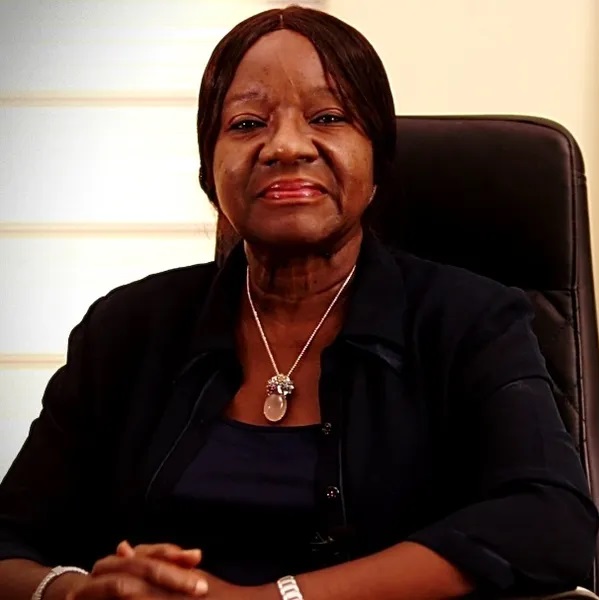
Dr Efunbo Dosekun, a medical doctor with specialty in paediatrics, is the brain behind Outreach Medical Services. She has been in the medical field for more than four decades.
In this interview with Saturday Sun, she spoke on several health issues relating to women and children. Dr Dosekun stressed the need for both the states and the Federal Government to ensure good remuneration for health workers in the country so as to reduce the rate of migration of health workers (the Japa syndrome). She also advised the government on the need for partnership between federal and private hospitals for effective health care delivery system.
What motivated you to bring women together for the sake of finding a lasting solution to the healthcare issues among women and children?
As far as l am concerned, particularly to African culture, women, children and babies are vulnerable, especially babies. Again, I felt that referral system when we do have an acute problem suddenly with our health, is not good enough. There have been so many instances when we have seen children and babies brought in very late because the parents didn’t know anywhere to go. Or the parents made an attempt to go to the government hospital and had to wait for a long time, and probably not to be attended to. They may be just referred on and on from one hospital to the other till they finally go home or get frustrated. So I said Lagos is quite a developed city in infrastructure, so why don’t we have systems that match it in terms of modernity, system of communication? What I am talking about is medical response system where something has happened and you know a number to call, or you are advised to go to a particular type of hospital, health centre if it is not so bad. Or you may be advised to go to the emergency room. But there must be somebody you have to talk to when you are distressed. In England, you just ring 999 and within 10 minutes someone would attend to you. So I decided that even if it is only rudimentary, there must be a recall centre. So we did a presentation about this to a group of women called, “Women Connect” and they agreed to work with us. We spoke also to Rotary Club and they welcomed the idea. We want to change the narrative. We are mobilising women. We can’t leave everything to government. We need to come together as a movement and talk to people who are interested in social impact to help us. For instance, a community insurance or membership of a call centre for a small subscription can help. We can have access to your call centre and you give us direction 24/7, so that if anything happens at any time to somebody, the person must be able to speak to somebody and that person must be able to negotiate for the person where she would go to, or negotiate an ambulance to propel the person there, if necessary. There is so much being in the dark that I am very concerned. I have been a doctor for 43 years. I am soon going to retire.
Did you take into consideration the Nigerian factor? For instance, poor communication system, transportation, traffic, and so on?
I know there are a lot of constraints, but instead of clogging our heads with constraints, let’s concentrate more on the good things that can happen if there is some intelligence to our medical response system. You may not even get the phone number, but you know that the hospital does this good work; you could just rush off there as an emergency. The beautiful thing about it is that once it starts, we will be able to persuade our colleagues because there are a lot of things that mitigate or stop people from going to hospitals. We know that government hospitals are full. Lagos expanded over a period of 10, 12 years from 10 million to 24 million. And the growth of hospitals has not been so fast because it is not easy to set up a hospital. That is why private sector hospitals have to come in to help, because many private sector hospitals are not full. So we have to find a way which we can mobilise people who need urgent care.
There is increase in child and maternity mortality. What do you think is the cause and how can it be solved?
Everybody always say that they are ignorant, and don’t know what to do. It is a lie. The problem is lack of money. Lagos State Government has really tried in Lagos State. It is minimal. If you can get access to a bed in a Lagos State-owned hospital, it is because it has been taken care of by the Lagos State Government, but you have to pay for drugs, etc. Such is not obtainable in private hospitals. So, government needs to work with us in the private sector. They cannot fulfil the need of 24 million people in Lagos, that is the reason many go to traditional birth attendants (TBAs), and to the chemist boy. The first thing is that the government needs to collaborate with the private hospitals that are ready, because it is not all the private hospitals that are ready to start doing social impact work and changing the public health narrative.
In this situation, government should choose private hospitals to help them, particularly in the area of women, babies and children. This is necessary because the Sustainable Development Goals (SDGs) rate is almost reaching its termination. Part of the goals is to reduce the mortality rate in children, women and babies. So we need private sector. We need to unlock the potential in the private sector. There are some people who are ready to look at these social issues and are ready to develop innovative and transformative ways of dealing with large crowds. It is possible; it is even done in Indian hospitals. l have seen how they have done it. They brought down the cost, but there must be numbers. Take for instance, if the government promises to give me 50 patients daily, l will expand my premises in order to take as many people as possible. l will have a training institute where l will take young nurses and develop them to be specialised in different skills so they will be able to support the physicians in executing their clinical roles.
So, there are so many things that could be done. The government can call us in and say, for each case you see, l will pay you this amount. Or government can send the subscribers of Lagos State insurance, but of course it has to be reviewed because the premium, the billing is too low and some of these cases require acute care. Acute care is different. It is not like giving analgesics, it is very acute. You are changing the drugs, high quality drugs. They are using oxygen and high skilled people. But the government must think about it. Government cannot just think about the primary health care, because if you think about it, you will still be having lots of deaths. As primary health care does only preventative measures, they do early diagnoses, but there must be well equipped hospitals that will take care of cases that have been diagnosed by primary health care. Without that it makes everything so shallow. Women should mobilise themselves and come together. We just have to care. Wives of politicians, senior bankers, industrialists, and so on, need to leave their ivory tower of splendour and protection and come and sensitise themselves and see the suffering and come together, and demand the physicians or health planners that are interested, to come together and plan.
Having been in the medical field for more than four decades in the healthcare system particularly taking care of children, what do you consider major health challenges facing babies, and how can they be prevented?
Pre-maturity in babies or babies appearing smaller than they should, that is sepsis, mothers having problem during the birthing process, can kill babies. Other killer diseases among babies include; a baby coming out not breathing well, and jaundice. Research has shown that the mother has to be in a good state before and after child birth to avoid malnutrition in babies. To avoid these diseases also, pregnant women should not just sit down at home, they must ensure they attend antenatal care.
I think Nigeria has done well in terms of providing primary health care that are facing antenatal care. There is such a wide choice on where pregnant women could go for antenatal care in Nigeria.
Also, pregnant women need to get in constant touch with doctors, senior nurses. There must be partnership. If there is proper antenatal care with expectant mothers taking their routine drugs, some of the pickup problems such as Caesarean Section (CS) should be detected on time and followed up appropriately.
There is what is called entrapatom period, that is 48 hours before and 48 hours after birth, just a period around delivery. That is when all sorts of things happen. It is a period the mother or the baby can die. A baby may come out not breathing well, but with skilled health practitioners around, some of these problems can be adequately taken care of. Having a baby at home or with traditional birth attendants, we want to see how we can reduce it. Those in rural and semi urban areas, I agree we have to train them, especially when there is no medical centre close by. When they are well trained, they will be able to identify dangers on time and follow up immediately. If those periods can be tidy, we will see fewer problems when the baby comes out.
In this country, we are seeing jaundice which is simple to treat in babies. It is just to put the baby under specialised light, and yet we are having jaundice. High jaundice destroys the baby.
In many West African countries they do not see it anymore, because they have a follow-up system called Health Surveillance System where they check the babies when they are three days, to make sure that they have not become very jaundiced. Our system is not strong enough. To treat jaundice is not rocket science. We need just strategies and then technical team, the doctors, to come up with a real robust programme that is around that time, 24 hours before and 24 hours after, to make sure that everything is standardized whenever the person is going to have the baby. Even the mothers can be trained in these early warning signs.
So when we finish having these things, we now must have a good emergency response system so that when things go wrong, you must be able to call a number. Those workers there must also have a conversation with the hospitals, find out who has a bed, so that we don’t do the crazy thing we are doing where we are sending people from one hospital to the other with a child that is gasping. Can you imagine the pain that parents are going to go through, and this in a private transport Keke Marwa in a country with bridges and skyscrapers? It is not right. Women have to stand up because the political system is still so immature. They are not being called to deliver their mandates. We all just sit down and wait for another election.
Some mothers do not like breastfeeding their babies, rather they prefer artificial milk. What is your take on this?
It is so important that women should breastfeed their babies very well because, breastfeeding does not only give the baby the right nutrient – babies who are well breast fed have a better attachment to their mothers. It is called bonding. It is an emotional bridge between a child and the parents. Research has found that those children who have solid attachment with their parents have less mental health problems. They are able to cope better when they had challenges along the line, even up to old age. Children who are well breastfed have less tantrums, less addiction, and better school performance. This can be referred to as emotional. Also talking about physical health, if you read about the component of breast milk, it did not only contain carbohydrate, protein, fats, vitamins, there is also additional factor there that is going to allow the immune system of the baby to grow, because we know that the immune system grows across time. They challenge the body nerve, which is weak in the first one year. God has given us special fluid to help the baby’s immune system grow properly. Inside the breast milk, there are already resolved factors. There are factors there that stimulate the immune system. There are bacteria there that are called friendly bacteria that stimulate the immune system, particularly in that breast milk in the first few days of life. It is yellow and it is called cholesterol.
How about adults? Some have said breast milk is also good for adults.
That’s right. Even now, adults take it because it has such a useful element in it. It makes a healthy adult. So we must not miss that opportunity. This is the time that the old and the new can combine. In our native culture there’re different ways we can do to promote lactation, and also in modern science, there are equipments that they give. There are also herbal drugs that can help in lactation.
Report has shown that there is increased rate of medical flight in the country. What is the way out?
Medical flight is natural phenomena. The fact is that things are getting tougher in the country and people are looking for a way out. If the private and government hospitals can pay their health workers well, l think it will go a long way in reducing the rate in which health workers leave the country in search of better remuneration.
What is your advice to women?
There is need for women, particularly in Lagos, to form a women group that will enable them establish community insurance. Let us have a community insurance, no matter the small amount. Let us do less fashion, and decide the amount that each will put down every month and, we have volume and we can now plan. With such plan in place, women will know hospitals to partner with, so that when they or their children are sick, they will know which hospital to visit, and such hospital will not charge them much because it is a group thing.
-

 News10 hours ago
News10 hours agoWike’s Aide reacts as photo appears online, points accusation finger at paid failed actress
-
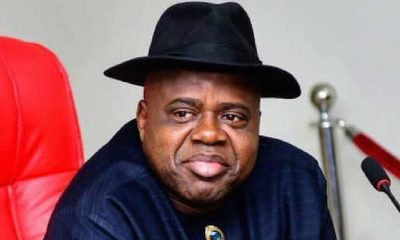
 News16 hours ago
News16 hours agoUpdated: WATCH moment Gov Diri’s Tech Adviser Kerry admits blowing up pipelines (Video)
-

 News6 hours ago
News6 hours agoFormer HoR member, TeeJay Yusuf calls on IGP, Kogi govt, other agencies to curb rising insecurity in Okun-Yoruba
-
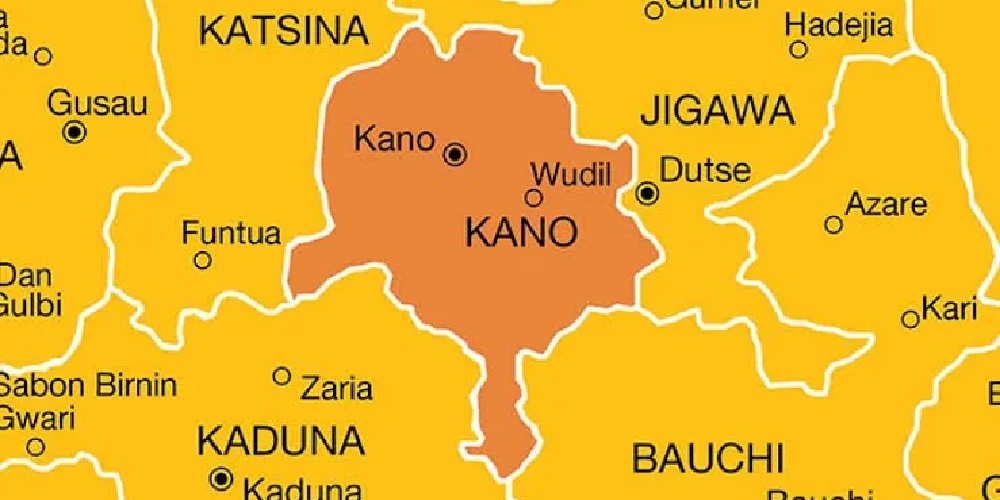
 News8 hours ago
News8 hours agoEdo Killings: Kano Govt Sends Fact-Finding Delegation, Demands Justice
-
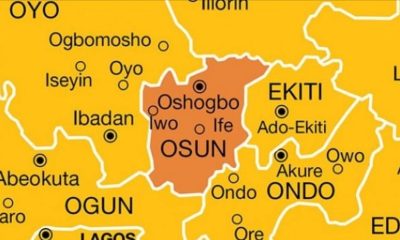
 News8 hours ago
News8 hours agoJust in: Popular Osun Monarch Joins Ancestors
-
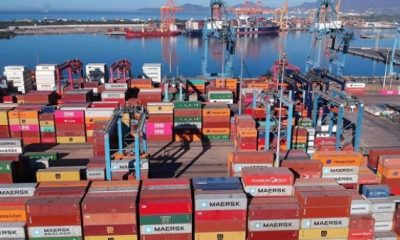
 News5 hours ago
News5 hours agoMali, Niger, Burkina Faso Impose 0.5% Levy On Goods From ECOWAS Nations
-
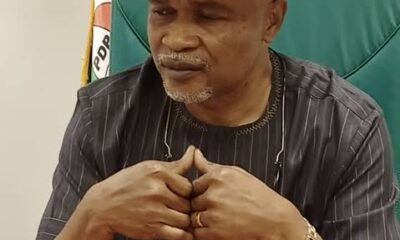
 News60 minutes ago
News60 minutes agoReps Minority Caucus Condemns Killings in Edo State
-
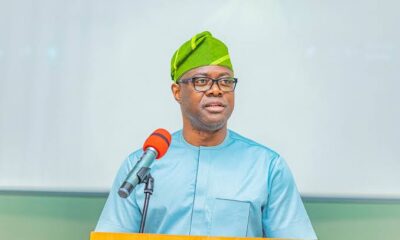
 News12 hours ago
News12 hours agoN24bn monthly salaries drive Oyo’s economic stability – Makinde assures





